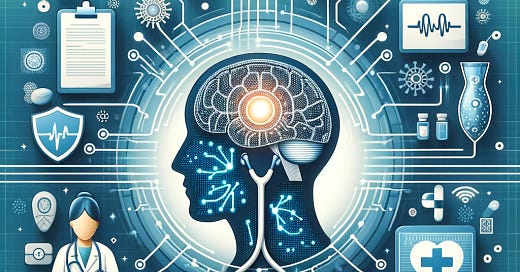In the world of healthcare, a silent issue lurks that doesn't get much airtime. It does not sell any new products, and it doesn’t hit us with the warm fuzzies. The problem of medical error in general and getting diagnoses wrong in particular. Recent studies have brought to light a startling statistic: nearly 800,000 Americans face death or permanent disability each year due to these mistakes.
Understanding Diagnostic Errors
What exactly are diagnostic errors? Simply put, they're when doctors misidentify the cause of a patient's illness, such as overlooking a heart attack or confusing pneumonia with something more severe like a pulmonary embolism.
Despite the advancements in medical imaging and lab tests, there's been no real progress in reducing these errors. A report from 2015 highlighted that 5% of adults encounter a diagnostic error annually, and it's likely everyone will experience at least one in their lifetime. A big part of the problem? Doctors often have to make quick decisions without the chance for a thorough review, relying on instinct rather than deep analysis.
AI to the Rescue?
But there's hope on the horizon with artificial intelligence (AI). AI is stepping up, particularly in interpreting medical images, where it's showing promise in boosting accuracy beyond what even seasoned clinicians can achieve alone. For instance, in breast cancer screening, AI assistance not only improved accuracy but also slashed the workload by 44%. Similarly, AI in colonoscopies reduced missed polyps by over 50%, adding only 20 seconds on average to the procedure.
AI in Healthcare Good…Sometimes
With advancements in AI, we're now looking at a future where all of a patient's data, from health records to lab results, can be analyzed comprehensively. There are already stories of AI, like ChatGPT, diagnosing rare conditions that have stumped numerous doctors.
Yet, these tools aren't without their flaws. There's a risk of bias, where AI might make assumptions based on age, race, or gender. Moreover, while some AI tools have shown superior diagnostic skills in studies, they also highlight the potential for doctors to over-rely on AI suggestions.
Balancing Act Between Human and Machine
The conversation around AI in medicine isn't just about its potential to outperform humans. It's also about using AI as a second opinion, a backup that offers a more detailed analysis than a busy doctor might be able to manage alone. As we look to the future, the aim is to refine AI models to be more medically accurate and unbiased, becoming invaluable assistants in the quest to eliminate diagnostic errors. AI, in its current version, has a place in augmenting clinicians' intelligence. This "collaborative intelligence" is where the data is processed by AI to speed workflow and complete complex tasks of gathering many points of information and allowing the physician to determine what is important or actionable.
Concluding Thoughts
Experts like Dr. Eric Topol and Dr.Andrew Ng see a bright future where AI could provide exhaustive medical knowledge and experience, acting as a supercharged seasoned doctor. While we're not quite there yet, the journey towards integrating AI into medical diagnostics is exciting, promising a future where diagnostic errors become increasingly rare.





